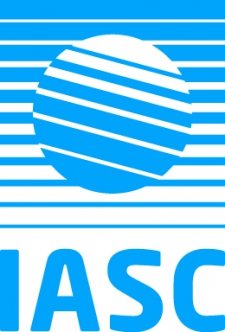By: Volker Rachold, International Arctic Science Committee (IASC) and Þorsteinn Gunnarsson, the Icelandic Centre for Research (RANNÍS)

The International Arctic Science Committee (IASC) is a non-governmental, international scientific organization founded in 1990 by representatives of national scientific organizations of the eight Arctic countries: Canada, Denmark, Finland, Iceland, Norway, Russia, Sweden, and the United States of America. Over the past 25 years, IASC has evolved into the leading international science organization of the North and its membership today includes 23 countries, including 15 non-Arctic countries (Austria, China, the Czech Republic, France, Germany, India, Italy, Japan, the Netherlands, Poland, Portugal, South Korea, Spain, Switzerland, and the United Kingdom). The Founding Articles committed IASC to pursue a mission of encouraging and facilitating cooperation in all aspects of Arctic research, in all countries engaged in Arctic research, and in all areas of the Arctic region. IASC promotes and supports leading-edge multi-disciplinary research in order to foster a greater scientific understanding of the Arctic region and its role in the Earth system. IASC´s instruments to support science development include its five Working Groups and the Arctic Data Committee. Contributions are made through participation in workshops, networks, long-term programs, assessments, and collaborative science planning activities such as the recently completed third International Conference on Arctic Research Planning (ICARP III).
The organizational needs of IASC are served by an international Secretariat, which is hosted and financed by an IASC member country. The first 15 years Norway provided support for the Secretariat and in 2006 Sweden took over. Since 2009 the Secretariat is hosted by the Alfred Wegener Institute in Potsdam (Germany) and co-financed by the German Science Foundation (DFG). The central IASC Secretariat is supported by small sub-secretariats hosted and financed by other IASC member countries. At present the Secretariat has sub-offices in Canada, Japan, Korea, and Poland and a fifth sub-secretariat in Russia is currently being established.
At the IASC Council meeting, which was held on 14 March 2016 in Fairbanks, Alaska, it was decided to move the location of the central IASC Secretariat from Potsdam to Akureyri, Iceland where it will be hosted by the Icelandic Centre for Research (Rannis) for five years beginning 1 January 2017.
Rannis supports research, innovation, education, and culture in Iceland. Rannis cooperates closely with the Icelandic Science and Technology Policy Council and administers competitive funds in the fields of research, innovation, education, and culture, as well as strategic research programs. It also coordinates and promotes Icelandic participation in European programs such as Horizon 2020, Erasmus+, and Creative Europe and represents Iceland within IASC.

The IASC Secretariat will be located in the town of Akureyri in Northern Iceland, which has become a center for Arctic research institutes, activities, and events. In Akureyri, the IASC Secretariat will be located on the University of Akureyri campus in close proximity with several important Arctic agencies that can benefit IASC activities; these agencies include the Stefansson Arctic Institute, the Icelandic Arctic Cooperation Network (IACN), the University of Akureyri Research Centre, and two of the secretariats for the Arctic Council Working Groups—Conservation of Arctic Flora and Fauna (CAFF) and Protection of the Arctic Marine Environment (PAME).
The cooperation of these Arctic institutes and agencies, and others in the research environment of Akureyri, will create excellent conditions for the IASC Secretariat to thrive and prosper in an efficient way for the long-term interest of the important endeavor that is Arctic research.
Further information about IASC is available here.
